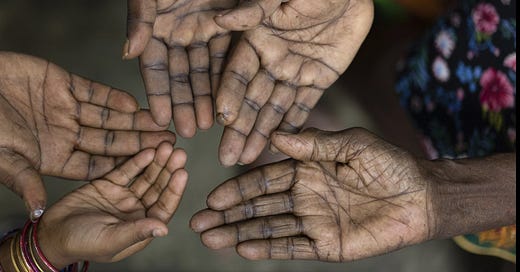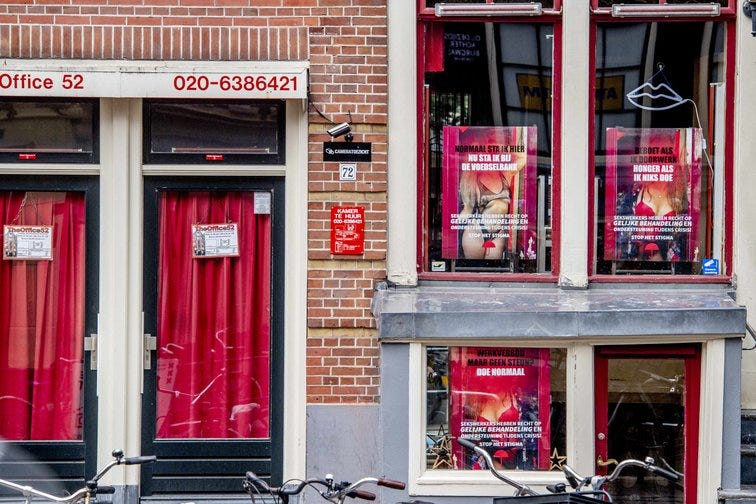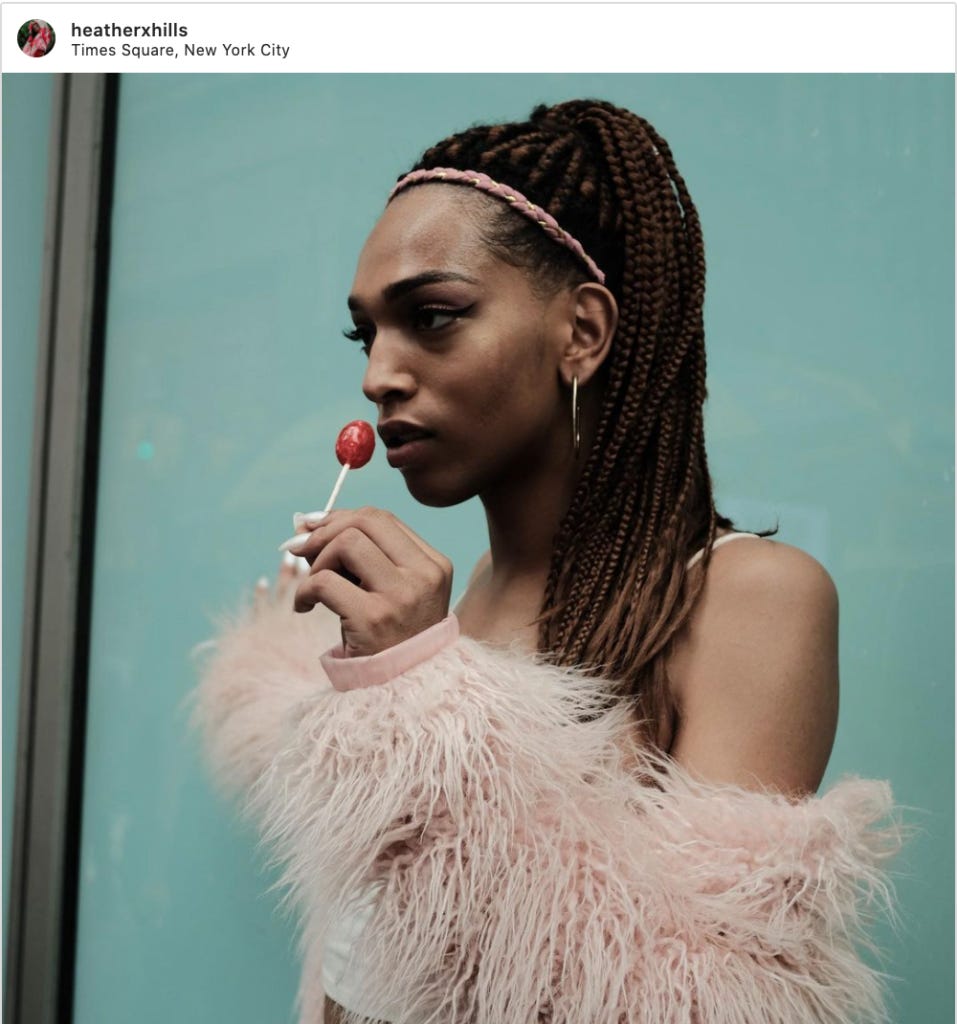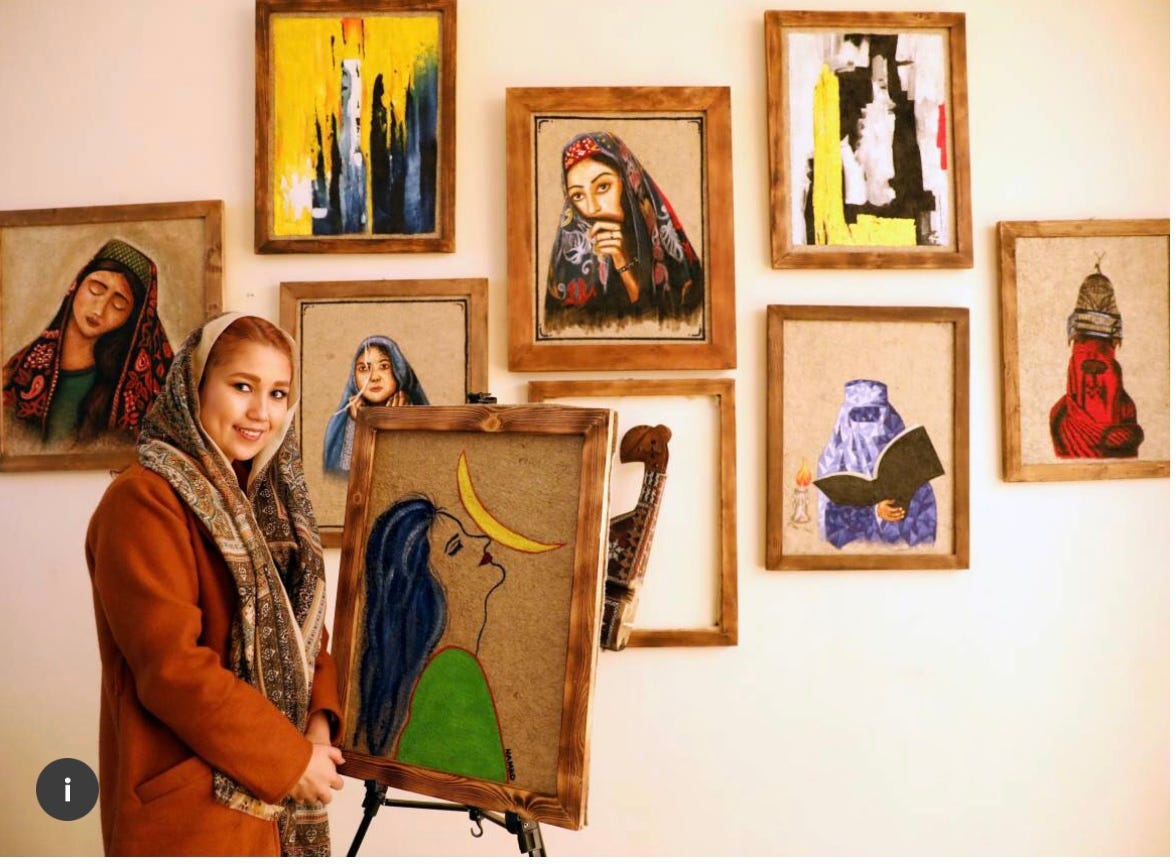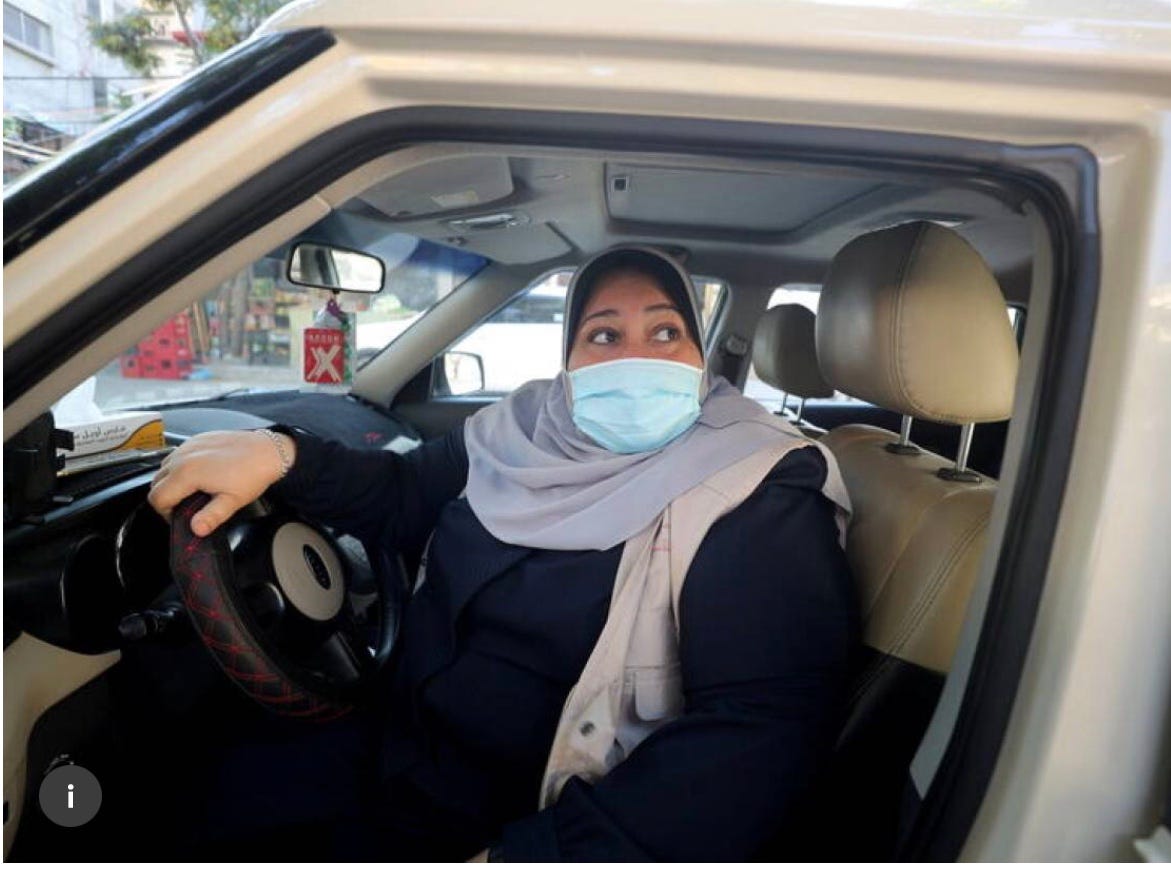Global Roundup: Workers and Trans People Against Patriarchy and the Pandemic
Compiled and written by Samiha Hossain
Ranging in age from 6 to 102, women in a family that has worked on a palm oil plantation for five generations hold out the palms of their hands in Malaysia. (AP Photo)
CW: Rape
Rape, miscarriages and serious chronic health issues - these are just a few of the horrors the millions of women working in the palm oil industry in Indonesia and Malaysia suffer. Palm oil is an ingredient found in a wide range of items from food to beauty products such as mascara and anti-wrinkle creams. The Associated Press has conducted the first ever comprehensive investigation on the palm oil industry with a focus on the treatment of women. The investigation has found “widespread abuses in the two countries, including human trafficking, child labor and outright slavery”.
Women are tasked with the most dangerous jobs that involve hours of exposure to harmful chemicals and carrying loads so heavy that it leads to collapsed uteruses. Furthermore, many women are hired day-to-day by subcontractors for decades so that they don’t receive benefits and their pay isn’t guaranteed. Working in these plantations is often a generational cycle, as girls start working at a young age and thus don’t have time for education. Many families cannot afford to give up the company’s basic subsidized housing - which often doesn’t even have running water.
The AP’s interviews of more than three dozen women and girls from at least 12 companies across Indonesia and Malaysia, as well as over 200 interviews with other workers, activists, government officials and lawyers make it clear that abuse is a regular occurrence for these women. In the article, several women recount stories of being raped by their male supervisors. Reports to the police are usually dropped as it’s the supervisor’s word against the woman’s.
The article names several companies linked to palm oil and some linked specifically to mills fed by plantations where abuse has been reported. Unsurprisingly, no companies cite tangible steps they’ll take to address these pressing issues. What does it mean when billion dollar beauty companies that use palm oil in their products tout women’s empowerment messages while their woman workers face inhumane working conditions and live in poverty? We need to demand transparency and accountability and that these companies address the abuse of their women workers with urgency.
--------------------------------------------------------------------------------------------------
Red Light District windows closed in Amsterdam, Netherlands. Picture by Utrecht Robin/ABACAPRESS.COM/ABACA/PA Images. Via OpenDemocracy.net
The COVID-19 pandemic has exacerbated the control of women migrant workers, whose work is devalued and underpaid. Such controls have hit sex workers, nurses, and domestic workers especially hard.
Sex workers are assumed to be disease carriers and thus in Southeast Asian and EU countries, their movement has been restricted. Sex workers from the Philippines who used to work in Hong Kong as visa-free tourists, are now stuck at home unable to work. Most countries don’t offer any government assistance to sex workers. Furthermore, the Philippines government imposed a temporary migration ban on healthcare professionals, including nurses. Meaning, they have to delay their migration to fill the healthcare worker shortage in the country. Despite these nurses being called “heroes”, they work for little pay and often without protective equipment or hazard pay.
Many middle-class families have been hit financially by the pandemic, which has led them to fire their domestic worker. For example, In Lebanon, domestic workers from Ethiopia and Nigeria have been left at their embassies without money for their return to their origin countries. Their mobility is also very limited. Employers in Singapore have withheld the salary of domestic workers asking for a day off. Also, many employers have demanded domestic workers switch from live-out to live-in work to further limit their mobility - however, they have not adequately compensated this switch.
Migrant workers should not be targeted to make personal sacrifices for the sake of public health. At the very least, they need safe working conditions and adequate pay. Women’s labour continues to be devalued and invisibilized despite being the backbone of society - the pandemic has only reinforced this historical pattern.
--------------------------------------------------------------------------------------------------
An essay in Asian American Writers’ Workshop discusses trans liberation for Asian and Black Americans now that Joe Biden has won the presidential election. Yen Nguyen - an Asian American trans woman model - is interviewed. She discusses her daily experiences with anti-Asian racism as well as transphobia. Heather Hills is also interviewed - she is a Black trans woman musical artist. Her goal is to increase representation of Black trans people in music.
Although trans people are gaining visibility in the media and Joe Biden even vocalized his support for the transgender community, these communities continue to face misogynistic, transphobic and racial violence. Historically, Asian Americans have been pitted against Black people through the Model Minority Myth, which implies that Asian Americans supposedly enjoy upwards social mobility due to their strong work ethic and compliance with the system. It is important that this myth be rejected for Asian and Black solidarity.
What I’m most worried about is the repeal of gay marriage. A majority of Americans don’t understand queerness outside of cis-heteronormative gayness. And the statue of cis-heteronormative gayness is gay marriage. Once they repeal that, then that’s one big win for them. And once you go for a win, you go for another, which means they’ll start pulling all things queer and trans - Heather Hills
The author does not believe electoral politics will bring about true justice: “real progress begins with active conversations with peers, academics, family members, friends, opponents, and local politicians unaware or ignorant to the issues transgender PoC communities face”. Trans people of colour will not settle for superficial statements of diversity - they’re committed to working together towards liberation for all. That is an especially powerful message to remember on this Trans Day of Remembrance, the annual November 20 observance that honours victims of fatal anti-trans violence.
--------------------------------------------------------------------------------------------------
Afghan artist Faiqa Sultani poses next to her painting at the Namad Gallery in Kabul, Afghanistan November 9, 2020. REUTERS/Mohammad Ismail
Marzia Panahi is a 21-year Afghan woman who has tackled her country’s high rate of youth unemployment by opening an art gallery called Namad Gallery. Not only does she want to create jobs for young people impacted by the pandemic, she also wants to revive the use of felt in art and display the creativity in Afghanistan.
When COVID-19 cases increased in Afghanistan, I saw how unemployment was getting higher, and when we realized how deadly poverty can be...I put together a team of young people so that we could at least be useful to ourselves and those around us, and become entrepreneurs - Marzia Panahi
Sixty percent of the population in Afghanistan is under the age of 25. According to the World Bank predictions, over 70% of the population will slip beneath the poverty line in 2020 due to the economic crisis created by the pandemic. Particularly in this climate, Panahi’s work plays an important role in supporting young people. One woman employed by the gallery says that joining Namad improved her mood and helped her with depression caused by the lack of job opportunities.
--------------------------------------------------------------------------------------------------
Palestinian woman Naela Abu Jibba, who started a women-only taxi service in Gaza Strip, sits behind the wheel of her vehicle at Beach refugee camp in Gaza City November 17, 2020. Picture taken November 17, 2020. REUTERS/Mohammed Salem
Naela Abu Jibba is a 39-year-old mother of five who has become the first woman taxi driver in Gaza. The fact that many passengers feel safer and more comfortable with a woman driver, makes the sexist comments Jibba receives worth it, she says. The pandemic has reduced travel, but Jibba hopes to expand her business once it’s over.
I get lots of offensive (social media) comments, but the encouraging comments are far greater. Some say this is a job for men, others say we (women) cause accidents, when the fact is, women are calmer and more careful drivers than men - Naela Abu Jibba
It is inspiring to see women take their livelihoods into their own hands - particularly at a time where unemployment rates are high and economic crises are widespread. It is important that governments also step up with policies and initiatives that support people impacted by COVID-19, especially marginalized groups like women, mothers and young people.
—————————————————————————————————————--
Samiha Hossain (she/her) is a student at the University of Ottawa. She also works with survivors of sexual violence in her community from an anti-oppressive and trauma-informed perspective. A lot of her time is spent learning about and critically engaging with intersectional feminism, transformative justice and disability justice.
Samiha firmly believes in the power of connecting with people and listening to their stories to create solidarity and heal as a community. She refuses to let anyone thwart her imagination when it comes to envisioning a radically different future full of care webs, nurturance and collective liberation.

